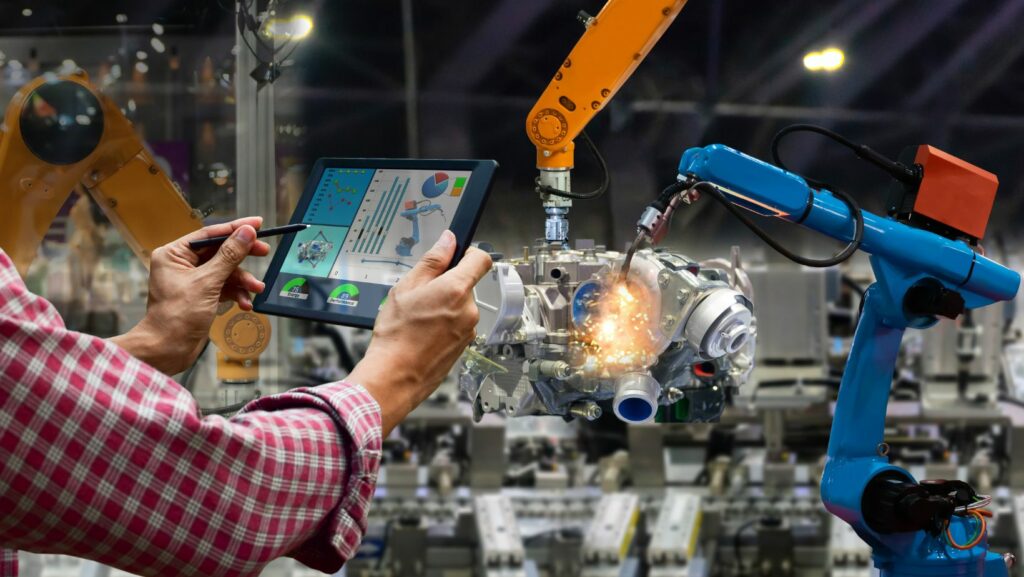Mechanical engineering has always been at the forefront of technological advancements, shaping the way we live and work. From the Industrial Revolution’s steam engines to today’s cutting-edge robotics, this field continues to push boundaries and redefine possibilities. With each innovation, mechanical engineers solve complex problems, improve efficiency, and enhance our daily lives.
Mechanical Engineering Innovations
Mechanical engineering persists as a key contributor to technological growth. Recent innovations demonstrate this through automation, robotics, and material science advancements.
The Rise of Automation and Robotics & Advancements in Material Science
 Automation and robotics revolutionize manufacturing, reducing costs and improving quality. Autonomous robots now perform tasks ranging from welding to packaging. For instance, automotive assembly lines deploy robotic arms to install components with high precision. Innovations in AI have enhanced the adaptability of robots in various industries. Boston Dynamics’ robots showcase advanced mobility, highlighting the potential of automated systems.
Automation and robotics revolutionize manufacturing, reducing costs and improving quality. Autonomous robots now perform tasks ranging from welding to packaging. For instance, automotive assembly lines deploy robotic arms to install components with high precision. Innovations in AI have enhanced the adaptability of robots in various industries. Boston Dynamics’ robots showcase advanced mobility, highlighting the potential of automated systems.
Material science advancements lead to stronger, lighter, and more durable materials. Carbon fiber composites, for example, now replace metals in aerospace applications, reducing weight while maintaining strength. Innovations in nanomaterials offer enhanced properties at the microscopic level. Graphene, discovered in 2004, exhibits exceptional strength and conductivity, revolutionizing electronics and medical devices. Advances in this field continue to impact design and manufacturing processes.
Impact of Mechanical Engineering Innovations on Industries
Mechanical engineering innovations have reshaped various industries, enhancing efficiency, performance, and sustainability. Several industries have notably benefited from these advancements.
Automotive Industry Transformation
 Mechanical engineering has revolutionized the automotive industry. Advances in hybrid and electric powertrains have significantly reduced greenhouse gas emissions, aiding environmental sustainability. Autonomous vehicle technology, leveraging sophisticated sensors and AI algorithms, enhances road safety and traffic efficiency. Lightweight materials, such as aluminum and carbon fiber composites, improve fuel efficiency and vehicle performance. The integration of automated manufacturing processes, like robotic assembly lines, has increased production speed and quality control. Furthermore, innovations in thermal management systems have optimized vehicle cooling, ensuring engine performance and longevity.
Mechanical engineering has revolutionized the automotive industry. Advances in hybrid and electric powertrains have significantly reduced greenhouse gas emissions, aiding environmental sustainability. Autonomous vehicle technology, leveraging sophisticated sensors and AI algorithms, enhances road safety and traffic efficiency. Lightweight materials, such as aluminum and carbon fiber composites, improve fuel efficiency and vehicle performance. The integration of automated manufacturing processes, like robotic assembly lines, has increased production speed and quality control. Furthermore, innovations in thermal management systems have optimized vehicle cooling, ensuring engine performance and longevity.
Aerospace Innovations
Mechanical engineering has driven significant innovations in the aerospace sector. The development of advanced propulsion systems, including turbofan and scramjet engines, has elevated fuel efficiency and speed, enabling longer and faster flights. Materials like carbon-fiber-reinforced polymers and titanium alloys have reduced aircraft weight, thus enhancing fuel efficiency and payload capacity. The implementation of additive manufacturing (3D printing) has reduced production time and costs for complex aerospace components. Enhanced aerodynamics, achieved through computational fluid dynamics (CFD) modeling, improves aircraft performance and reduces environmental impact. Additionally, advancements in real-time monitoring systems enhance aircraft maintenance and safety, minimizing downtime and operational costs.
Sustainability in Mechanical Engineering
Sustainability has become a focal point in modern mechanical engineering. Innovations aim to reduce environmental impact while maximizing efficiency and performance. Several key areas have seen significant advancements.
Renewable Energy Integration, Energy Efficiency Improvements and Sustainable Materials
 Mechanical engineers develop systems to integrate renewable energy sources (e.g., wind turbines, solar panels) into existing grids. They design more efficient turbines, enhance photovoltaic panel efficiency, and create energy storage solutions to stabilize power supply from intermittent sources.
Mechanical engineers develop systems to integrate renewable energy sources (e.g., wind turbines, solar panels) into existing grids. They design more efficient turbines, enhance photovoltaic panel efficiency, and create energy storage solutions to stabilize power supply from intermittent sources.
Engineers innovate to boost energy efficiency in mechanical systems. Examples include enhanced HVAC systems that consume less power, energy-efficient engines, and optimized manufacturing processes that minimize waste and energy use.
The use of sustainable materials in mechanical engineering is on the rise. Engineers employ biodegradable composites, recycled metals, and other eco-friendly materials in manufacturing. These materials reduce environmental impact and improve the recyclability of products.
Waste Reduction and Recycling, Water Resource Management & Environmental Impact Analysis
Mechanical engineers develop technologies to minimize waste in manufacturing processes. They design systems for effective recycling of industrial by-products, converting waste into reusable materials or energy.
Innovations in mechanical engineering also address water conservation. Engineers create efficient water treatment systems, devise methods to reduce water consumption in industrial processes, and develop technologies for desalination and recycling of wastewater.
Mechanical engineers perform environmental impact assessments when designing new systems and products. This analysis ensures that projects align with sustainability goals. Tools like life cycle assessment (LCA) help evaluate the environmental footprint of products from production to disposal.

